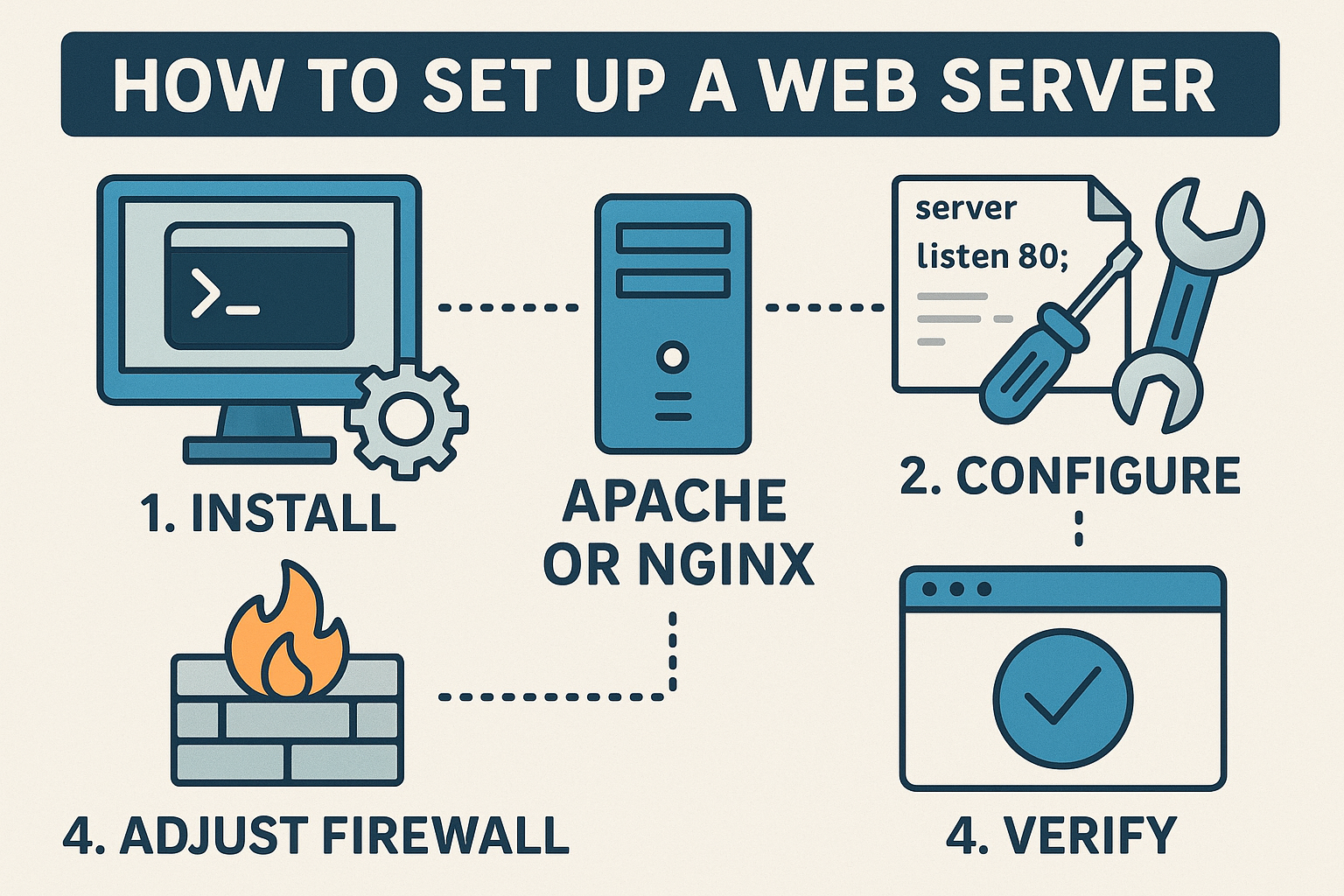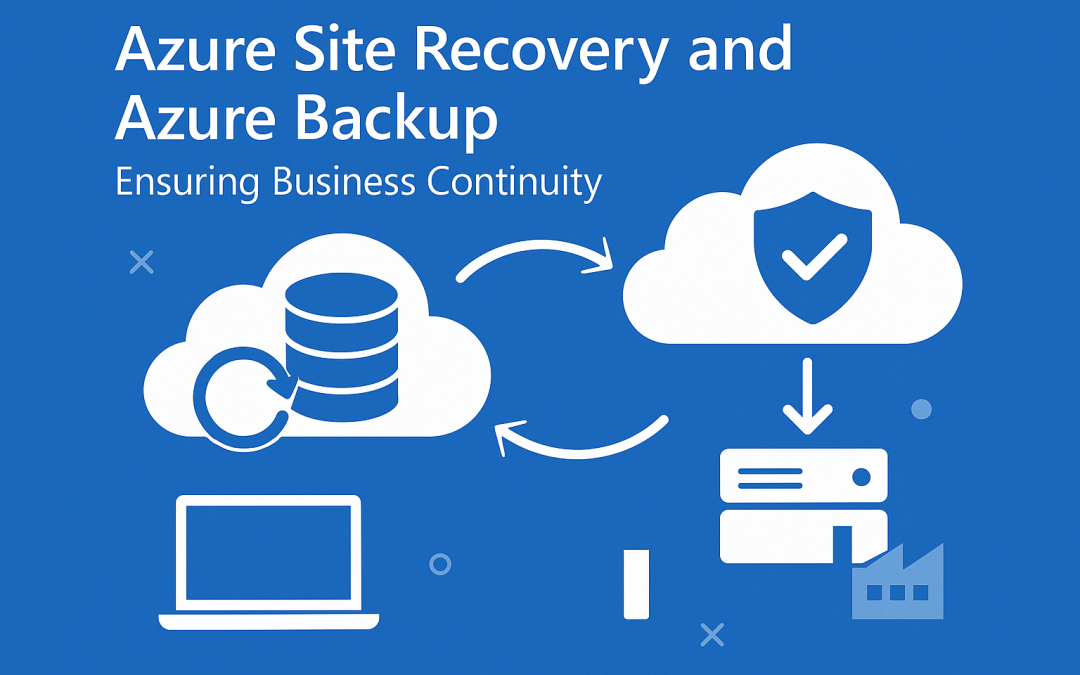
Setting up a web server is one of the first steps to hosting your own website or application. Two of the most popular web servers are Apache and Nginx, both known for their reliability and performance. In this guide, we’ll walk through the basics of setting up each on a Linux server.
Step 1: Update Your Server
Before installing any packages, update your server to ensure you’re running the latest versions:
sudo apt update && sudo apt upgrade -y
Step 2: Install Apache
To install Apache, run:

sudo apt install apache2 -y
Enable and start the Apache service:
sudo systemctl enable apache2
sudo systemctl start apache2
Test by visiting your server’s IP address in a browser. You should see the Apache2 Default Page.
Step 3: Install Nginx
For Nginx, run:
sudo apt install nginx -y
Enable and start the Nginx service:
sudo systemctl enable nginx
sudo systemctl start nginx
Check by entering your server’s IP in a browser. You should see the Nginx Welcome Page.
Step 4: Configure Firewall
Make sure your firewall allows HTTP and HTTPS traffic:
sudo ufw allow 'Apache Full'
sudo ufw allow 'Nginx Full'
Step 5: Test and Deploy Your Website
- Place your HTML files in:
- Apache:
/var/www/html - Nginx:
/var/www/html(or your configured root directory)
- Apache:
- Reload the web server after changes:
sudo systemctl reload apache2
# OR
sudo systemctl reload nginx
Apache vs Nginx: Which Should You Choose?
- Apache: Flexible, wide support, good for complex applications.
- Nginx: Lightweight, high performance, excellent at handling many simultaneous connections.
FAQs
Q1: Do I need root access to install Apache or Nginx?
Yes, you need root or sudo privileges to install and configure the server.
Q2: Can I run both Apache and Nginx on the same server?
Yes, but they must run on different ports or configured with a reverse proxy.
Q3: Which one is faster, Apache or Nginx?
Nginx generally handles static files and high traffic more efficiently, while Apache is very flexible for dynamic applications.
Q4: How do I secure my web server?
Use SSL certificates (via Let’s Encrypt), configure firewalls, keep software updated, and disable unnecessary modules.
Meta Description
Would you like me to also add SSL setup with Let’s Encrypt in this blog so it covers security basics too?
How to Set Up a Web Server (Apache or Nginx) (F.A.Q)
Do I need root access to install Apache or Nginx?
Yes, you need root or sudo privileges to install and configure the server.
Can I run both Apache and Nginx on the same server?
Yes, but they must run on different ports or configured with a reverse proxy.
Which one is faster, Apache or Nginx?
Nginx generally handles static files and high traffic more efficiently, while Apache is very flexible for dynamic applications.
How do I secure my web server?
Use SSL certificates (via Let’s Encrypt), configure firewalls, keep software updated, and disable unnecessary modules.



